Explanation of my 10 Ballon d'Or 1981
This is my ranking, my opinion on the Ballon d'Or of the year 1981. This ranking is based on the calendar year, not the season. What counts for this ranking is the player's regularity over the calendar year, the number of matches played, the ability to raise his level in big games, statistics (goals, assists, clean sheets, goals conceded, etc.) and trophies won (collective and individual).
#10 Uli Stielike
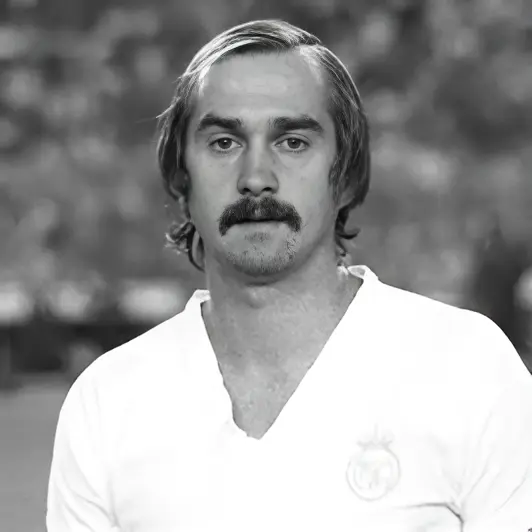
- Age : 26/27 years old
- Club : Real Madrid
- Statistics : 47 games, 10 goals, / assists
- Trophies : Finalist Champions League, Liga Vice-Champion
- Individual Awards : Champions League TOTY, Liga Foreign POTY, Liga TOTY
In 1981, Uli Stielike was the quiet force powering Real Madrid’s midfield, a player whose influence often went beyond the stat sheet. That year, he was at the peak of his consistency and versatility, anchoring the team with his tireless work rate, tactical intelligence, and ability to transition seamlessly between defense and attack. Though Madrid didn’t win La Liga that season, Stielike’s performances were so impactful that he was named La Liga’s Best Foreign Player by Don Balón—for the third consecutive year. That kind of recognition in a league filled with international stars speaks volumes about his standing in Spanish football. He wasn’t flashy, but he was indispensable. Whether breaking up opposition attacks, launching counters with pinpoint passes, or stepping into the backline when needed, Stielike was the glue that held Madrid together. In 1981, he wasn’t just one of the best midfielders in Europe—he was one of the most respected professionals in the game. A model of consistency, class, and quiet dominance.
#9 Dino Zoff
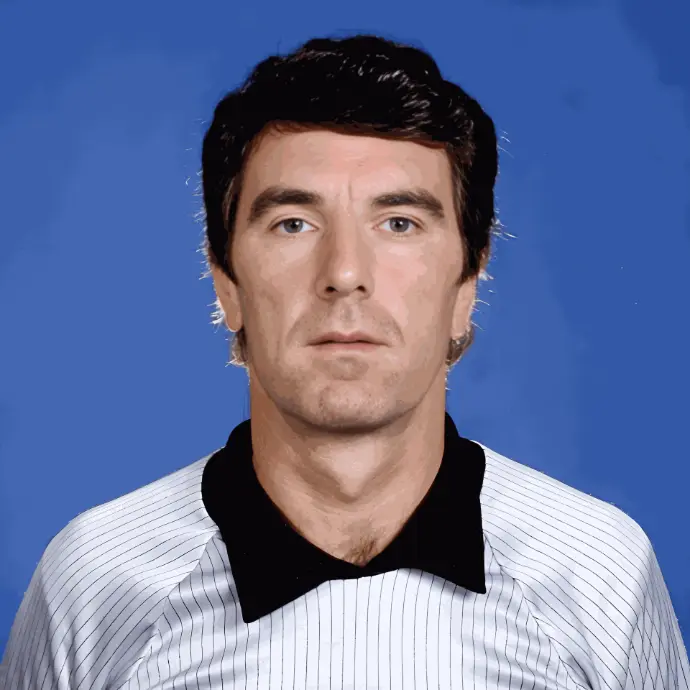
- Age : 38/39 years old
- Club : Juventus Turin
- Statistics : 40 games, 25 goals conceded, 21 clean sheets
- Trophies : Serie A
- Individual Awards : Serie A TOTY
In 1981, Dino Zoff was still defying time, standing tall as the unshakable guardian of both Juventus and the Italian national team—at nearly 40 years old. While most players his age had long since retired, Zoff remained a model of consistency, leadership, and calm under pressure. That season, he helped Juventus win the Serie A title, anchoring a defense that was among the stingiest in Europe. His reflexes, positioning, and ability to read the game were as sharp as ever, and his presence between the posts gave the Bianconeri a sense of invincibility. He wasn’t just a goalkeeper—he was a commander, organizing the backline with quiet authority. Internationally, Zoff continued to wear the captain’s armband for Italy, preparing for what would become his crowning moment at the 1982 World Cup. But even in 1981, he was already a legend in motion—a symbol of longevity, discipline, and excellence.
#8 Kenny Dalglish
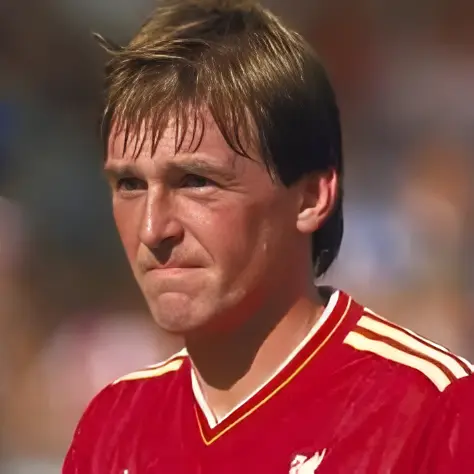
- Age : 29/30 years old
- Club : Liverpool FC
- Statistics : 53 games, 14 goals, 15 assists
- Trophies : Champions League, Finalist Intercontinental Cup, English League Cup
- Individual Awards : Champions League TOTY, Premier League TOTY
In 1981, Kenny Dalglish was the heartbeat of Liverpool, orchestrating attacks with unmatched intelligence and finesse. That season, he helped lead the club to a League Cup victory, scoring in the final replay against West Ham and proving once again that he thrived in high-pressure moments. His link-up play with emerging star Ian Rush was beginning to blossom into one of the most feared partnerships in Europe. Dalglish wasn’t just a scorer—he was a creator, a thinker, and a leader. His ability to drop deep, read the game, and deliver the perfect pass made him the fulcrum of Liverpool’s attack. Even as the team narrowly missed out on the league title to Aston Villa, Dalglish’s performances remained consistently brilliant. By 1981, he had already won two European Cups and was firmly entrenched as a legend at Anfield.
#7
Bernd Schuster
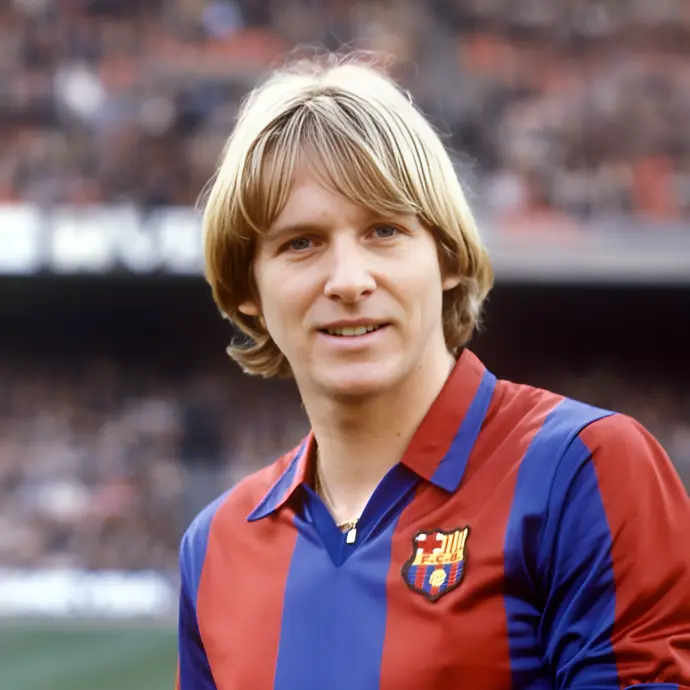
- Age : 21/22 years old
- Club : FC Barcelona
- Statistics : 39 games, 17 goals, / assists
- Trophies : Spanish Cup
- Individual Awards : Liga TOTY
In 1981, Bernd Schuster was already dazzling Spain with his brilliance, firmly establishing himself as the creative engine of FC Barcelona. At just 21, he was orchestrating play with a maturity beyond his years—his passing range, vision, and thunderous shot made him one of the most complete midfielders in Europe. That year, he helped Barcelona win the Copa del Rey, playing a pivotal role in their midfield alongside stars like Quini and Simonsen. His performances earned him the Ballon d’Or Bronze, placing him among the top three players in the world—a remarkable feat for someone so young and playing outside the traditional powerhouses of Italy and Germany. But 1981 wasn’t without hardship. In December, Schuster suffered a serious knee injury after a brutal tackle by Andoni Goikoetxea—an incident that sidelined him for months and cast a shadow over his meteoric rise.
#6 Oleg Blokhin
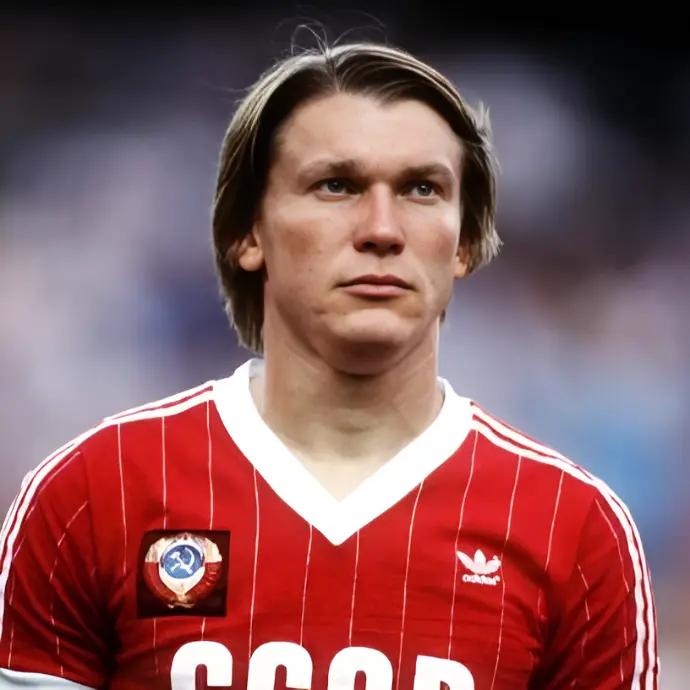
- Age : 28/29 years old
- Club : Dynamo Kyiv
- Statistics : 46 games, 28 goals, 8 assists
- Trophies : USSR League
- Individual Awards : Ukrainian POTY, USSR League TOTY
In 1981, Oleg Blokhin was still the undisputed king of Soviet football—a lightning-fast forward with a lethal eye for goal and a work ethic that never wavered. Playing for Dynamo Kyiv, he continued to terrorize defenses across the Soviet Top League, adding to his already staggering goal tally. That year, he helped Dynamo finish second in the league, contributing with both goals and leadership as the team remained a dominant force domestically. Blokhin’s style was a blend of raw pace, sharp dribbling, and clinical finishing. He wasn’t just a striker—he was a relentless force who could turn a game in a heartbeat. By 1981, he had already won the Ballon d’Or (in 1975), but he was still performing at an elite level, proving that his brilliance wasn’t a flash in the pan.
#5 Michel Platini
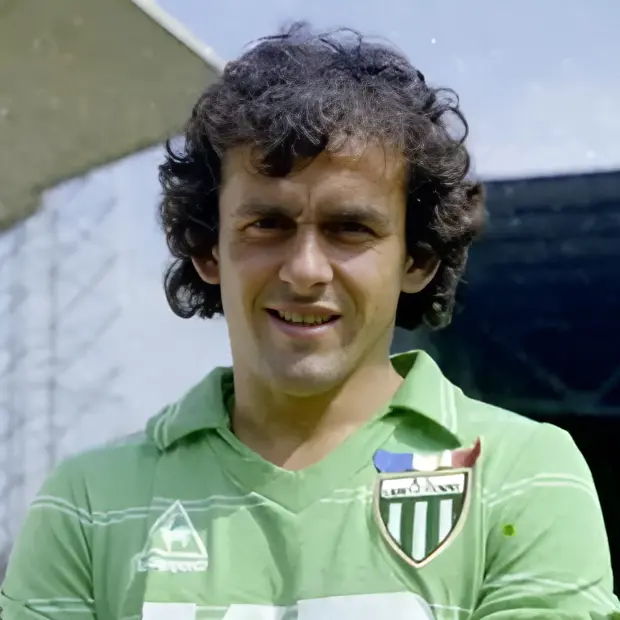
- Age : 25/26 years old
- Club : ASSE
- Statistics : 52 games, 31 goals, / assists
- Trophies : French League, Finalist French Cup
- Individual Awards : French League TOTY
In 1981, Michel Platini was the undisputed maestro of French football, orchestrating play with elegance, precision, and a touch of genius. That year, he led AS Saint-Étienne to their tenth French league title, scoring a memorable brace in the decisive match against Bordeaux on June 2nd—a performance that sealed his only Ligue 1 championship and etched his name into the club’s history. Physically and technically, Platini was already close to his prime. He netted 31 goals across all competitions, an astonishing tally for a midfielder, and his free-kick mastery and vision made him the heartbeat of every attack. His influence extended to the national team as well, where he continued to shine for France, scoring a crucial goal against the Netherlands in a World Cup qualifier on November 18, 1981.
#4 Paul Breitner
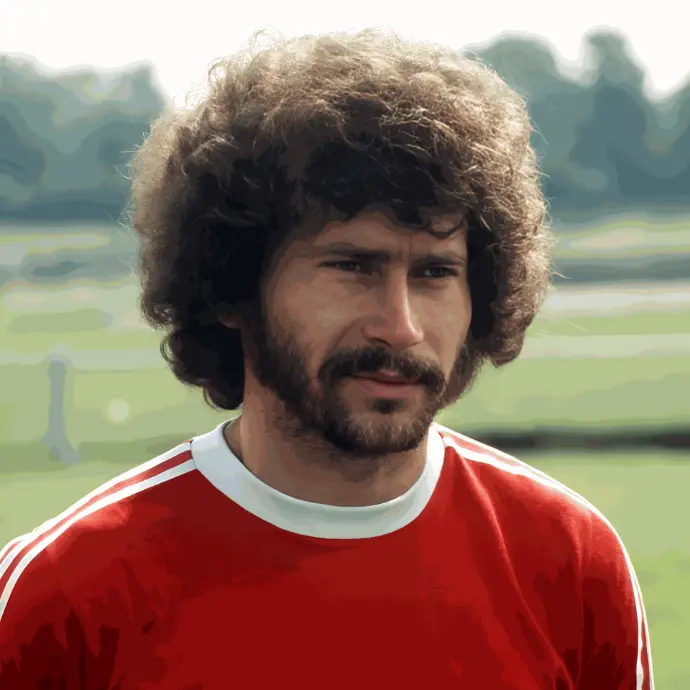
- Age : 29/30 years old
- Club : Bayern Munich
- Statistics 49 games, 27 goals, 11 assists
- Trophies : Bundesliga
- Individual Awards :
German POTY, Bundesliga TOTY
In 1981, Paul Breitner was the beating heart of Bayern Munich, a leader on and off the pitch who combined tactical brilliance with fierce determination. Repositioned as a central midfielder after years as a marauding left-back, he reinvented himself as a complete player—capable of dictating tempo, breaking up play, and launching attacks with pinpoint precision. That year, he captained Bayern to the Bundesliga title, ending a six-year drought and restoring the club’s dominance in German football. His partnership with Karl-Heinz Rummenigge—dubbed “Breitnigge” by the press—was the engine behind Bayern’s success, blending flair and grit in equal measure. Breitner’s performances didn’t go unnoticed: he was named German Footballer of the Year in 1981, a rare honor for a player who had already won the World Cup seven years earlier. His leadership, versatility, and relentless drive made him not just a star, but a symbol of Bayern’s resurgence.
#3 Diego Armando Maradona
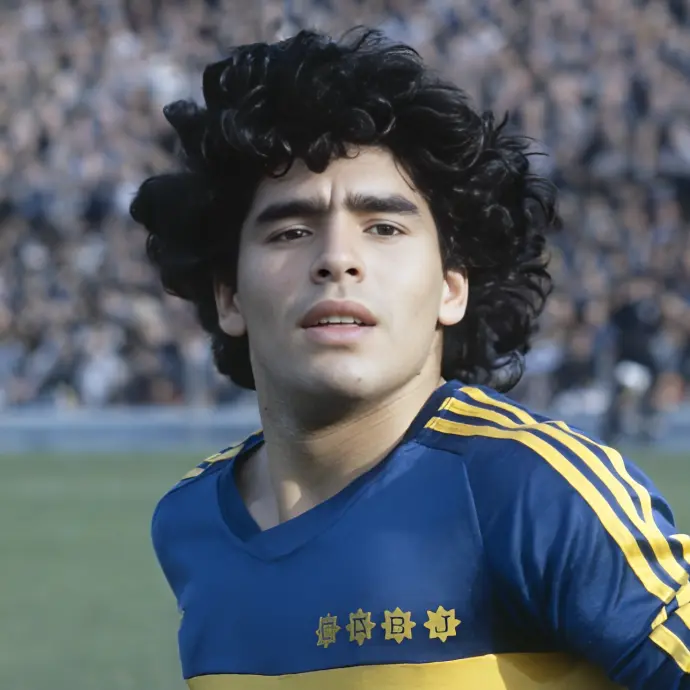
- Age : 20/21 years old
- Club : Boca Juniors
- Statistics : 42 games, 29 goals, 16 assists
- Trophies : Argentinian League
- Individual Awards : Argentinian League POTY, Argentinian League TOTY
In 1981, Diego Maradona was a force of nature, electrifying Argentine football with a mix of raw talent, swagger, and sheer brilliance. That year, he made a high-profile move from Argentinos Juniors to Boca Juniors, fulfilling a childhood dream and instantly becoming the heartbeat of the team. He led Boca to win the Torneo Metropolitano, scoring 17 goals in 28 matches, and dazzling fans with his dribbling, vision, and audacity. Whether it was nutmegging defenders or curling in free kicks, Maradona played with a joy and defiance that made him impossible to ignore. His performances were so dominant that he was named Argentine Footballer of the Year—for the third time in a row.
#2 Karl-Heinz Rummenigge
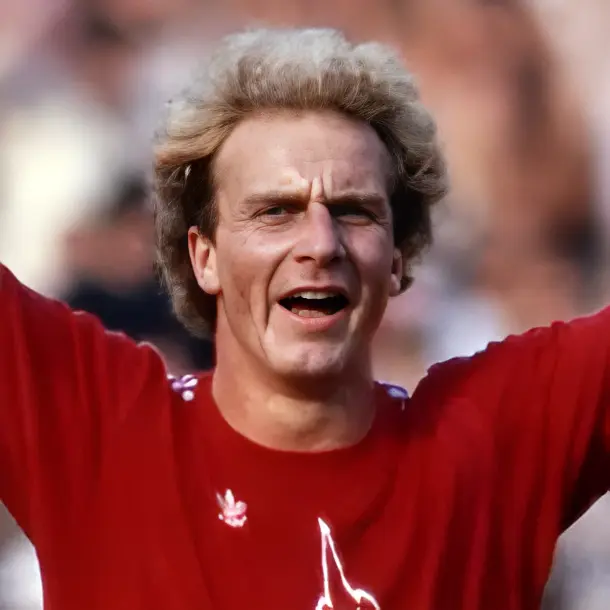
- Age : 25/26 years old
- Club : Bayern Munich
- Statistics : 56 games, 41 goals, 18 assists
- Trophies : Bundesliga
- Individual Awards : Champions League TOTY, Champions League Golden Shoe (6 goals), Bundesliga TOTY, Bundesliga Golden Shoe (29 goals)
In 1981, Karl-Heinz Rummenigge was simply unstoppable—a forward at the absolute peak of his powers, blending athleticism, intelligence, and ruthless finishing. That year, he led Bayern Munich to the Bundesliga title, finishing as the league’s top scorer with 29 goals. His partnership with Paul Breitner—nicknamed “Breitnigge”—was the engine of Bayern’s dominance, combining flair and grit in a way that overwhelmed opponents. Rummenigge’s ability to glide past defenders, strike from distance, and lead the line with authority made him the most feared attacker in Europe. His brilliance was recognized globally when he won his second consecutive Ballon d’Or in December 1981, cementing his status as the best player in Europe. He wasn’t just scoring—he was deciding matches, lifting trophies, and setting the standard for modern forwards.
Winner : Zico
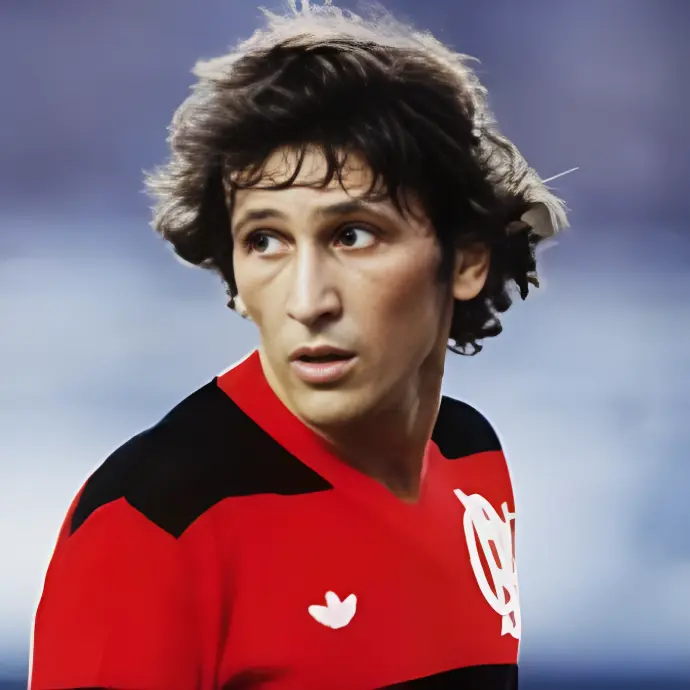
- Age : 27/28 years old
- Club : Flamengo
- Statistics : 67 games, 49 goals, 26 assists
- Trophies : Copa Libertadores, Intercontinental Cup, Rio Championship, Guanabara Cup
- Individual Awards : South American POTY, South American TOTY, Intercontinental Cup POTT, Intercontinental TOTT, Copa Libertadores POTY, Copa Libertadores TOTY, Copa Libertadores Golden Shoe (11 goals)
In 1981, Zico was untouchable—a footballing genius at the absolute height of his powers. That year, he led Flamengo to an extraordinary treble: the Campeonato Carioca, the Copa Libertadores, and the Intercontinental Cup. In the Libertadores final, he scored twice against Cobreloa, and in the Intercontinental Cup, he orchestrated a 3–0 demolition of Liverpool, assisting and dazzling on the global stage. It wasn’t just that Flamengo won—it was how they won, with Zico as the conductor of a symphony of samba football. He scored 49 goals in 67 matches in 1981—an absurd tally for an attacking midfielder—and was named World Player of the Year by World Soccer magazine. His free kicks bent physics, his vision split defenses, and his leadership elevated everyone around him. In a year packed with legends, Zico stood tallest—not just for the trophies or the stats, but for the way he made football feel like poetry. In 1981, he wasn’t just the best in Brazil—he was the best in the world. A maestro in motion. A magician in red and black. A year of pure brilliance.